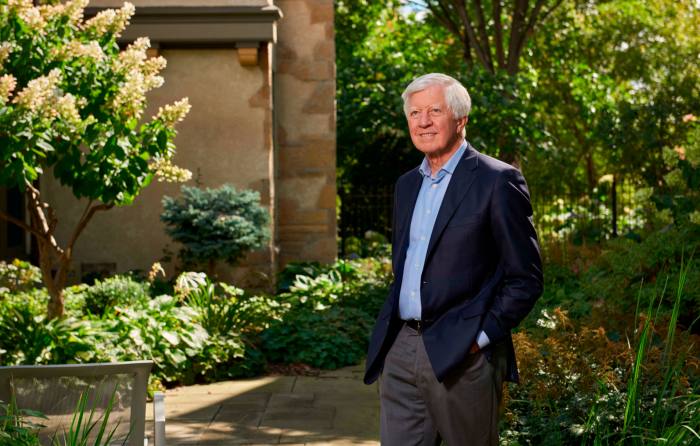Why business leaders should not become cult figures
Bill George thinks that we can attribute everything from George Floyd’s murder to Vladimir Putin’s invasion of Ukraine to failed leadership. That is a provocative assertion from the former Medtronic chief executive turned Harvard Business School professor who has spent 20 years advising everyone from CEOs and generals to ambitious middle managers on how to lead.
George, who has sat on the boards of Goldman Sachs and ExxonMobil (among others), has just put out the latest in a series of books in which he has tried to guide those in authority to embrace “authentic leadership” to inspire and empower those they oversee.
In True North: Emerging Leader Edition, he and co-author Zach Clayton call on a new generation to find their “North Star” — their purpose — and to bring values and moral courage to the challenges they face.

What is notable about George, though, is how alert he is to the downsides of putting managers on mountaintops. After a recent conversation with him, what stuck with me is the need to give as much thought to how to build effective governance in organisations as we do to what makes an individual a leader worth following.
George agrees without hesitation, for example, that our obsession with leadership risks creating all-powerful bosses unchecked by meaningful governance.
The “adulation” of CEOs was already a problem back when Jack Welch was running General Electric, George notes. (David Gelles, a former FT colleague, has accused the once-lionised Welch in a recent book of “breaking capitalism” in his 20-year tenure.)
George worries about “cults” forming around business leaders, especially when it comes to founders such as Elon Musk or Mark Zuckerberg. “Leaders get caught up in money, fame and power,” he warns.

We are fascinated by corporate leadership. But does that obsession come at the expense of corporate governance, the less exciting business of ensuring that there are checks on any one individual’s power in a company, and different, challenging opinions around the boardroom table?
This story originally appeared on: Financial Times - Author:Andrew Edgecliffe-Johnson
























